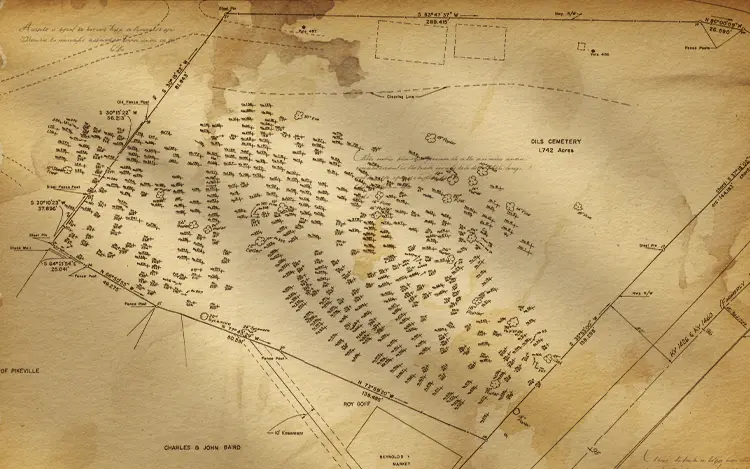
Dils Cemetery Map
Explore the layout and significant gravesites of Dils Cemetery, including the final resting places of the McCoy family and the cemetery’s inclusive burial sections.
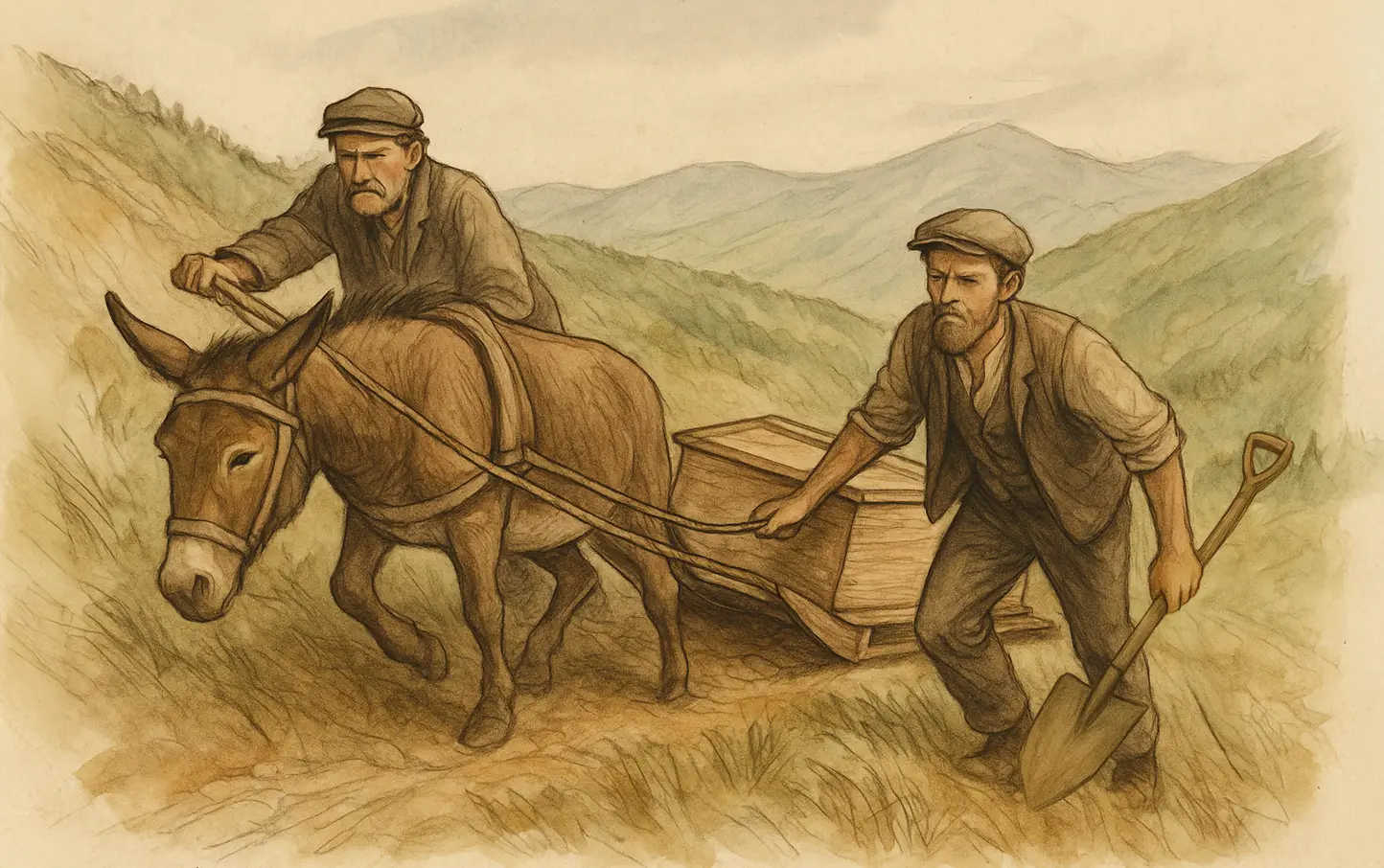

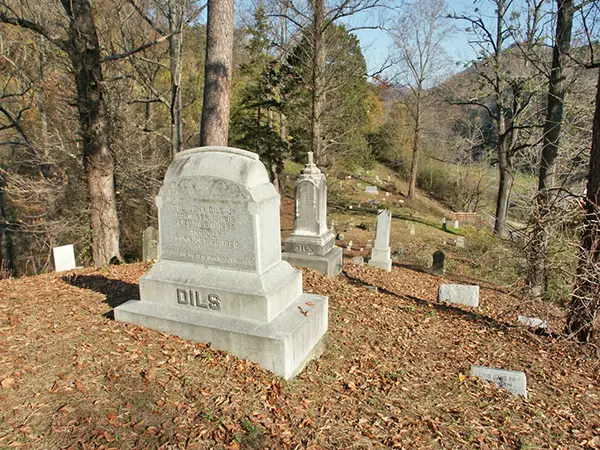
The Appalachian Mountains, with their steep slopes and deep hollows, have long shaped the way mountain families honor their dead. For generations, burying loved ones on hillsides was both a practical response to the region’s rugged terrain and a reflection of the deep bonds that held these communities together.
In the late 1800s, families typically buried their loved ones on family land or in small church plots. The hillsides offered good drainage, and the isolation of the mountains meant that these gravesites were often close to home. Digging graves was a community effort: neighbors and family members wielded picks and shovels, sometimes even building fires or using dynamite to break through rocky soil or frozen ground.
Coffins were usually handmade from local woods like pine, poplar, oak, or chestnut, with wealthier families opting for cherry wood if they could afford it. In earlier times, some used hollowed-out logs known as “tree coffins” before rough wooden boxes became more common. Preparing the body was a family and community affair—washing, dressing in the best available clothes, and laying it out at home for a wake or “sitting up.” Neighbors gathered to share food, memories, and prayers, staying through the night to comfort the family.
When the time came, the body was transported to the burial site, usually by wagon pulled by mules or oxen. On particularly steep hillsides or in winter, families might use a simple wooden sled, known locally as a “drag,” to move the coffin along narrow mountain trails. Mourners walked behind in a solemn procession, accompanying their loved one on the final journey. At the gravesite, simple fieldstones or wooden markers were used to mark the final resting place. The act of digging and filling the grave was seen as a final, sacred gift from family and friends.
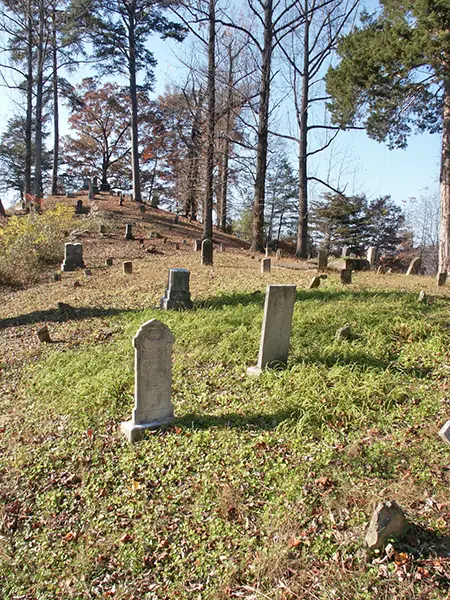
While many Appalachian families still maintain private hillside cemeteries, most burials today are overseen by funeral homes in established cemeteries. Mechanical equipment has replaced picks and shovels, making the digging of graves more precise and less physically demanding. Regulations now require specific grave depths, protective vaults, and permits, even for private family plots.
Despite these changes, the tradition of burying on hillsides endures, especially in rural areas where the custom and the need for good drainage still hold sway. Funeral homes handle most of the body preparation and transportation, but community support and family involvement remain essential parts of the process in many mountain towns.
A notable development in recent years is the rise of conservation or “green” burials, which echo the resourceful spirit of 19th-century mountain communities. These burials forego embalming and chemicals, using biodegradable shrouds or simple wooden boxes. Grave markers are natural stones or none at all, allowing the land to remain wild and undisturbed. In this way, families honor their departed in ways that connect them deeply to the earth and to the heritage of their ancestors.
From hand-dug graves and homemade coffins to today’s funeral homes and green burials, the ways in which Appalachians bury their dead reflect both the challenges of mountain living and a profound respect for tradition. In every quiet hilltop graveyard, the voices of the past still speak—reminding us that the bonds of family and community endure even in the most rugged corners of the land.

Explore the layout and significant gravesites of Dils Cemetery, including the final resting places of the McCoy family and the cemetery’s inclusive burial sections.
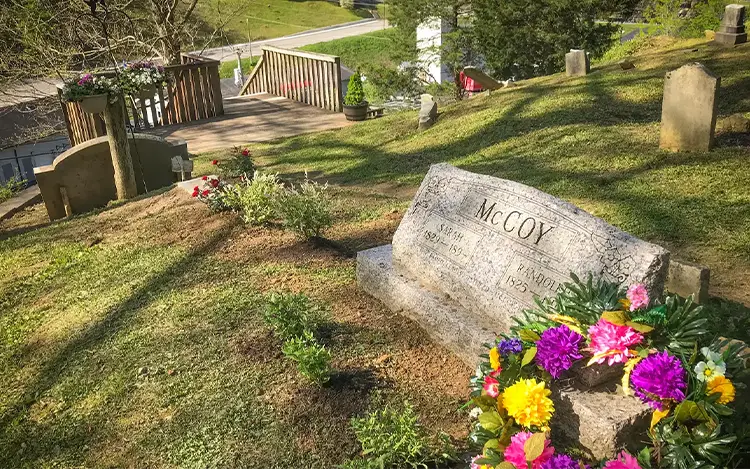
Explore the graves of the McCoy family and learn how this peaceful cemetery became a part of their story after the feud.
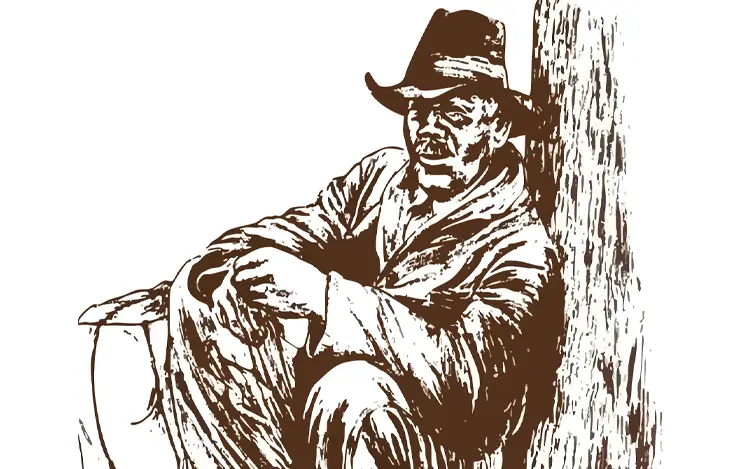
Learn about the cemetery's role as the first racially integrated burial ground in Eastern Kentucky, a legacy of community inclusion.
Start your adventure to Dils Cemetery and beyond by getting in touch with the Pikeville-Pike County, KY Welcome Center. Our team is happy to provide helpful information, local insights, and details to make your trip unforgettable.
📞 Call us at 606-432-5063
📧 Email us: Click to Email
